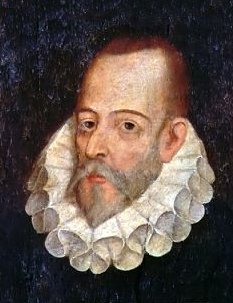If you search on the internet for the greatest novels of all time almost certainly you will find Cervantes’ “Don Quixote” as number one, written at the beginning of the 17th century in Spain. The book narrates about an overly idealistic nobleman who fights alleged injustice together with Sancho Panza, a simple farmer whom he recruited as his squire. It is actually quite remarkable that Cervantes started writing this novel in a prison in Seville. How is it possible that one of the greatest literary works ever made was written by a prisoner? And how did he end up there in the first place?
Even though Cervantes is commonly known as a writer, in his younger years he was everything but a novelist. Cervantes was a real “war-hero” as he fought as a catholic soldier with the “Holy League” against the Ottomans during the Battle of Lepant (1571) in the Mediterranean, generally regarded as the largest naval battle in Western history since classic antiquity. He almost lost his left hand during the battle, which would be paralyzed for the rest of his life. After that, he was captured by Muslim pirates and was held in captivity for five years in Algeria. He tried to escape four times, unfortunately, all in vain, and was eventually ransomed by his parents. Then he worked for the Spanish secret service in North Africa by the orders of the Spanish king Philips II himself, as he was familiar with the region. After this adventurous life, he lived a while in Seville where he worked as a civil servant and collected taxes. Apparently, Spain and fiscal fraud have a tradition that goes long back since he was accused of holding back money and so ended up in a Sevillian prison. This prison does not exist anymore but you find this red Cajasol building in front of the city hall at the Plaza de San Francisco.
So even though “Don Quixote” is 400 years old it is considered a masterpiece because it is timeless. Cervantes struggles with existential problems: what is a story and what is history, what is reality and what is fiction, what is the truth and what is a lie? Seville too is full of myths, legends, and stories which are based on events that really happened - or not? See for yourself when you do a bike tour with us and when our guides tell you everything you would like to know about Sevillian stories and histories. However, whether these are true or false only the Sevillians seem to know for sure.
